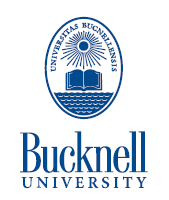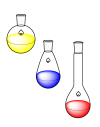Teaching
October 8, 2011Assistant Professor of Chemistry
Fall 2023 – Present
General Chemistry I lecture and laboratory, General Chemistry II lecture and laboratory, Physical Chemistry I lecture.
Department of Chemistry, Salisbury University, Salisbury, MD
Assistant Professor of Chemistry
Fall 2018 – Spring 2023
Physical Chemistry for science mayors; Chemistry Around the World for non-majors; Survey of General, Organic and Biochemistry for nursing majors; and General chemistry laboratory.
Department of Chemistry, Notre Dame of Maryland University, Baltimore, MD.
PCHEM: Part I: physicochemical properties of matter in the gaseous, liquid, and solid states; kinetics and thermodynamics of chemical reactions; behavior of solutions; phase equilibria; electrochemistry. Simulation of thermodynamic systems using Python. Part II: introductory-level quantum mechanics (molecular models and their mathematical description); computational chemistry; atomic and molecular structure; and spectroscopy. POGIL-style laboratories.
WorldCHEM: recognize and apply basic concepts in chemistry to understand the world around you. One of the core topics of this course is pollution by plastics, students learn how to distinguish the different types of plastics and their chemical structures, and learn about plastics recycling; with this knowledge students can make decisions on their lifestyle to help the improvement of the environment. Another main focus is processed food components; students learn chemistry terminology and structures of i.e. preservatives so they can understand the food labels. These knowledge will help them make decisions in what foods will be healthier for them.
Survey GOBCHEM: emphasizes the fundamental principles that form the basis of general inorganic, organic and biochemistry that are pertinent to the health sciences. Properties and reactivity of elements and compounds, use of radioactive elements in medicine, chemical bonding and structure, chemical equations and calculations, acids/bases and solutions, behavior of gases, identification and reactions of fundamental groups, system of nomenclature and stereochemistry. Course also investigates the properties and reactions of important compounds such as carbohydrates, lipids, proteins and some pharmaceuticals. Synthesis of proteins, RNA and DNA.
GCHEM Lab: this laboratory course stresses the determination of chemical and physical properties, qualitative chemical analysis, acid-base reactions, and inorganic synthesis.
Assistant Professor 
Spring 2018 – General Chemistry II and Coding for Chemists
Fall 2017 – Physical Chemistry for Chemical Engineers and General Chemistry I lectures
Department of Chemistry, Bucknell University, Lewisburg, PA
PCHEM: the course is designed to develop an understanding of the fundamental principles of thermodynamics, thermochemistry and kinetics; and the ability to apply these principles broadly and effectively. This course will help the student differentiate between processes driven by thermodynamics and processes driven by kinetics, and answer questions like why diamonds exist and why they do not become graphite. Also, the student will realize how scientific work begins by representing nature with simple models; and then increasing the complexity of those models to a) obtain more information about the system of study and b) to predict the system’s behavior.
GCHEM: this course is an introduction to the principles and practice of chemistry, with in-depth treatment of chemical reactions, atomic structure and periodicity, chemical bonding, chemical equilibrium, and states of the matter. The laboratory involves qualitative and quantitative analysis of chemical species and reactions; and the use of chemical compounds and materials for specific purposes.
GCHEM II: this course is an introduction to the principles and practice of chemistry, with in-depth treatment of thermodynamics, solutions, properties of solutions, kinetics, acid-base chemistry, equilibria in aqueous solution, electrochemistry, and radioisotopes.
Coding for Chemist: this course teaches the basics of computer programming using MATLAB and Python to those with no previous experience and how to use those languages to solve basic chemistry problems.
Spring 2015
2015
Adjunct Instructor-General Chemistry II, Organic Chemistry II and Biochemistry
Department of Math and Sciences, Thomas University, Thomasville, GA, US
Hybrid classes: Prepare lectures, videos, experiments and evaluations for all courses. Some of the topics are: Solutions and their properties; Chemical and Enzyme Kinetics; Nuclear Chemistry; Chemistry of alcohols, amines, carbonyl compounds; Proteins, Enzymes, etc..
Spring 2013
Adjunct Instructor –Physical Chemistry
Department of Chemistry and Biochemistry, Florida State University, Tallahassee, FL, US
Prepare lectures and evaluations for the course, which includes the topics of gases, thermodynamics, kinetics, enzyme kinetics, properties of mixtures and quantum mechanics.
 Fall 2010
Fall 2010
Teaching Assistant in Physical Chemistry Course & Laboratory
Fall 2012, Fall 2009, Fall 2007, and Spring 2007
Teaching Assistant in General Chemistry Course & Laboratory
Department of Chemistry and Biochemistry, Florida State University, Tallahassee, FL, US
Physical Chemistry Laboratory: Conduct experiments on gas/liquid/solid properties, and reaction mechanisms/ thermodynamics. Monitor undergraduate students’ progress by evaluating their lab reports and providing them feedback.
General Chemistry Lecture and Laboratory: Reinforce the lessons learned during lectures for groups of thirty undergraduate students, by discussing the topic learned and answering questions. Conduct experiments for students to understand basic concepts in chemistry and evaluate their progress through their lab reports and quizzes.
 Jul 2004 – Aug 2004
Jul 2004 – Aug 2004
Teaching Assistant in Physical Chemistry
Department of Chemistry, Universidad Nacional de Colombia, Bogotá, Colombia.
Description: Design and implement new experiments for the course.
 Feb 2003 – Jun 2004
Feb 2003 – Jun 2004
Adjunct Faculty in General, Organic and Analytical Chemistry Lecture and Laboratories
College of Basic Sciences, Universidad de la Amazonia, Florencia, Colombia.
Prepare and implement lessons and laboratories for 16-week courses for undergraduate students. Evaluate student’s performance through small group discussions in and out the classroom, exams, quizzes, homework, lab reports, and direct interaction.
 Summer 2004
Summer 2004
Lecturer in Principles of Biochemistry
Summer 2003
Lecturer in Chemistry Safety
Universidad del Tolima, Florencia, Colombia.
Principles of Biochemistry: Prepare, implement and evaluate lessons for 10-weekends course for adults inscribed in long distance learning programs. Discuss the basics of biochemistry like for example protein structures, enzymes and other macromolecules.
Chemistry Safety: Prepare, implement and evaluate lessons for 10-weekends course for adults inscribed in long distance learning programs. Discuss the basics for chemical safety, interpretation of symbols and numbers found in chemical containers, how to evaluate chemical risks, and actions to take in case of an small chemical emergency.

